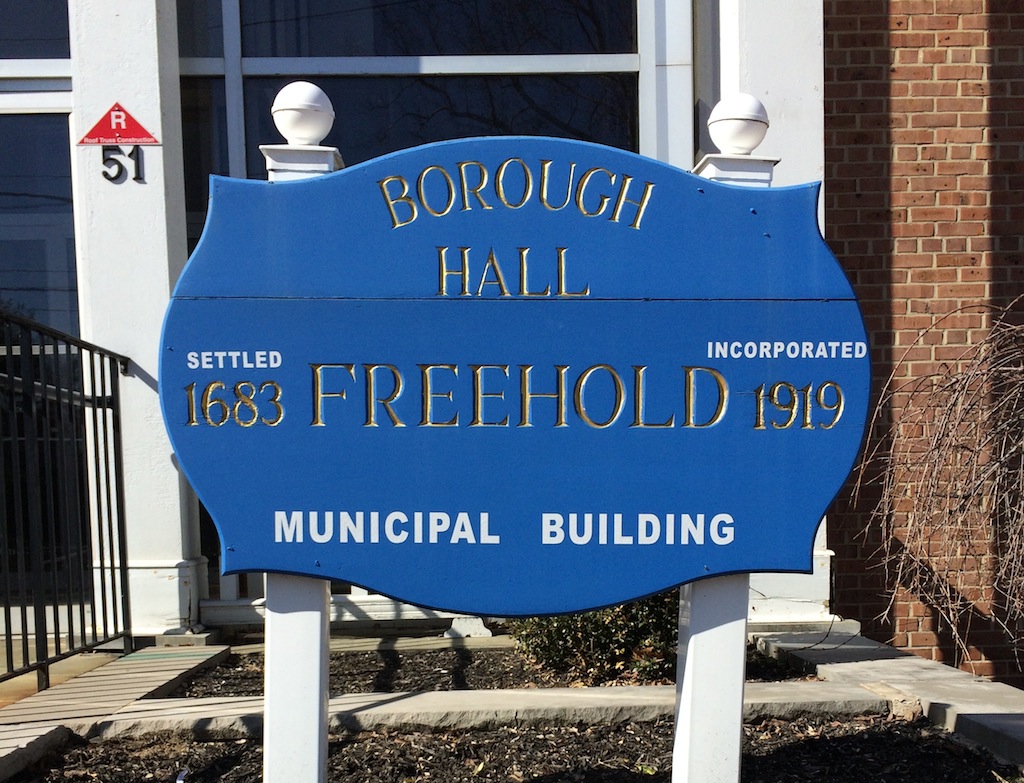By Matthew Sockol
Staff Writer
FREEHOLD – Appointments have been made to a Freehold Borough ad hoc committee whose members intend to develop a program that will seek to engage the public in government decision making on a local level.
On July 18, the Borough Council appointed Joseph Deroba, Ronald DeMarco, Michele Gibson, Joseph McArdle, Annette Jordan, Don Schaffner, Joan Leuth and Reimer W. Leuth to the Innovation Committee. Their terms will expire on Dec. 31.
Council members Sharon Shutzer, Michael DiBenedetto, George Schnurr, Kevin Kane and Ron Griffiths voted to approve the appointments. Council President Jaye Sims was absent from the meeting.
As an ad hoc panel, the Innovation Committee was established in 2014 for the specific purpose of studying Freehold Borough’s website and making recommendations for improving the town’s presence on the Internet.
The committee members who worked on the project were Deroba, DeMarco, Gibson, McArdle, Jordan, and Schaffner. According to Griffiths, who serves as the council’s liaison to the committee, the members completed their work and their appointments ended.
The Innovation Committee has received a new ad hoc assignment, according to Griffiths, which the six original members agreed to study, along with residents Joan Leuth and Reimer W. Leuth.
The primary goal of the renewed committee, according to the council’s resolution, is to develop and implement a citizens participatory budget program that will engage residents and business owners in government decision making.
The topic of participatory budgeting was brought up during a council meeting in April. Griffiths described participatory budgeting as taking a portion of a municipality’s capital budget and allowing the public to decide how that money will be spent.
Speaking in favor of the process, Griffiths cited the following potential benefits: an increase in attendance at meetings by members of the public, an increase in voter turnout and and an increase in citizen participation in government.
According to Griffiths, the concept of participatory budgeting began in 1989 and has reached 1,500 municipalities worldwide. He said it has currently not been implemented in any municipalities in New Jersey.
Business Administrator Joseph Bellina said 28 council districts in New York City use the process of participatory budgeting. He said residents are allowed to vote on a maximum of five projects and the districts have saved about one-fifth of their budgets.
Griffiths said voting regulations can be changed in participatory budgeting.
According to Bellina, the minimum voting age in New York City’s process is 14.
The process of participatory budgeting would take six months to a year to implement, according to Griffiths, because parameters need to be established in its development and the public needs to be educated about the process.
Kane, who serves on the Finance Committee, spoke in favor of participatory budgeting at the April meeting.

